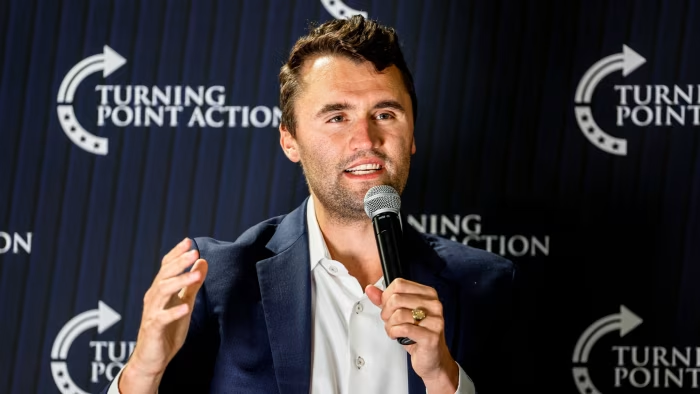
Charlie Kirk was a campus organizer, talk show host, and a polarizing presence in American politics. To supporters he was a tireless builder of youth networks on the right. To critics he was a sharp and often combative voice who pushed hard lines on culture and elections. On September 10, 2025, while speaking at Utah Valley University in Orem, he was shot and later died, a moment that sent shockwaves through political life and drew statements of grief and condemnation from across the spectrum.
Early life and first steps in politics
Charles James Kirk was born on October 14, 1993, and grew up in the Chicago suburbs. As a teenager he volunteered on campaigns, wrote about civics, and took an early interest in public speaking. He enrolled at Harper College but soon left to pursue activism full time, convinced that his energy and talent for organizing could find a larger outlet than the classroom.
That outlet arrived in 2012 when a chance meeting with a retired marketing executive and Tea Party activist, Bill Montgomery, helped set a course. The two sketched out the idea for a student driven organization that would make a case for limited government and free markets on college campuses, and then they started building it with phone calls, donor pitches, and long days on the road.
Founding Turning Point USA
Turning Point USA began modestly in 2012 and grew through a simple playbook. Recruit student leaders. Help them form chapters. Bring speakers. Create an online media presence that continues even when the tour leaves campus. The approach fit the moment, especially as social media rewarded quick clips and bold claims. Within a few years the group had a visible brand on many campuses and a donor base that supported national conferences and speaker series.
As the organization matured, it launched a related advocacy arm called Turning Point Action that handled voter outreach and election season activity. This expansion gave the network a wider range of tools, from campus events to ground operations in swing states. It also brought sharper scrutiny from reporters and watchdogs who debated where the line between student engagement and political campaigning should be drawn.
A growing media profile
Alongside the campus push, Kirk built a media platform. His daily show carried his voice to listeners beyond student audiences and gave him a channel to respond to critics in real time. He interviewed candidates and officials, commented on headlines, and turned conference stages into content engines that fed his podcast and social feeds. National outlets took note of his role in energizing younger conservatives, especially during the intense election cycles of the early and mid 2020s.
Positions, debates, and controversies
Kirk aligned closely with Donald Trump and the populist wing of the Republican Party. That alignment brought strong allies and intense opposition. After the 2020 election he amplified claims of widespread fraud that courts and officials rejected. His related advocacy group promoted buses to the January 6 rally in Washington, an announcement he later deleted. Reporting and testimony show that he invoked the Fifth Amendment in response to many questions from the House committee that investigated the attack on the Capitol. Supporters argue his aim was lawful protest and youth turnout. Critics say the rhetoric and organizing helped fuel a dangerous moment.
Outside election fights, he regularly waded into culture war topics and public health debates. Fact checkers and major outlets pushed back at times when he shared claims that later proved false, while his audience often praised him for challenging mainstream narratives and media gatekeepers. The push and pull made him a fixture in news cycles and a reliable draw for live events.
Influence on youth organizing
To understand his appeal, look at the rhythm he created. Frequent campus stops. Big tent conferences that mixed policy with celebrity guests. A steady stream of short clips designed for phones and feeds. It felt more like a movement than a traditional student club, and it taught young activists the mechanics of event production, fundraising, and volunteer management. Analysts credited this model with strengthening youth engagement on the right during the 2024 contest and beyond, even as debates raged about its tone and its effect on general election results.
Whether one celebrated or lamented the trend, few denied that Kirk understood how to turn attention into attendance and attendance into ongoing networks. By the mid 2020s his conferences functioned as party gatherings for college age conservatives, with breakout sessions on organizing and constant photo lines for social media.
The Utah Valley University shooting
On September 10, 2025, during an event at Utah Valley University in Orem, a single shot rang out while Kirk was taking questions. Eyewitnesses and video showed immediate chaos as attendees ducked, then fled. First responders moved quickly, and Kirk was transported to a local hospital, where he was later pronounced dead. Officials briefed the public as investigators searched for answers, and leaders from both parties denounced political violence. The moments before and after the shot were recorded by people inside the venue and widely reported by national and local outlets.
Coverage from wire services and broadcast networks underscored both the shock of the scene and the broader context of political tension. Vigils formed the same evening in cities across the country, including gatherings near the group’s headquarters in Arizona. Universities reviewed security plans for high profile speakers, and media organizations debated how to show the footage while respecting the gravity of the event.
Family and personal life
Kirk spoke frequently about faith and about the value of family life, themes that threaded through his speeches and media appearances. Friends and colleagues described a person who worked relentlessly and who relished the grind of touring and broadcasting. Detractors saw an activist willing to escalate rhetoric to win attention. Admirers saw a communicator who gave young conservatives a common home and a sense of belonging. Both portraits reflect pieces of the same public figure.
Assessing his legacy
Legacy is complicated, and that is true here. On one hand, Kirk helped build a durable infrastructure for youth activism on the right. He professionalized campus outreach and turned student engagement into a year round enterprise. On the other hand, his role in spreading false election claims and in pushing combative messages left many Americans alarmed at the temperature of public debate. The same strategies that drew crowds also drew sharp criticism for deepening divides.
What seems clear is that he had a gift for organization and for turning a microphone into momentum. He knew how to set a stage, how to frame a conflict, and how to keep a conversation going once the event ended. The movement he helped build will likely continue under new leadership, drawing on the event playbooks and digital practices he championed.
Why his story matters
Charlie Kirk’s rise shows how American politics has changed in the last decade. Influence does not depend only on party structures or traditional media. It can grow from a phone, a podcast feed, and a relentless travel schedule. It can be amplified by donors who want measurable results and by students who want a cause to claim as their own. That model does not belong to one side. It is now a standard part of political life, for better and for worse.
His death, sudden and public, forced a pause. For a moment, adversaries and allies used the same words: shock, sorrow, and a plea to reject violence. The investigation continues, and debates about rhetoric and responsibility will continue as well. But the loss is personal for many people who knew him or who learned organizing inside his network. It is also national, because a figure who shaped a corner of American politics is gone.
Key facts
- Born: October 14, 1993, Arlington Heights area of Illinois
- Known for: Cofounder and chief executive of Turning Point USA; host of a daily talk show and podcast; prominent figure in youth organizing on the American right
- Controversies: Promoted false claims about the 2020 election and announced buses to the January 6 rally before deleting the announcement; later invoked the Fifth Amendment before the House committee investigating the attack on the Capitol
- Died: September 10, 2025, after being shot during a Utah Valley University event in Orem, Utah
Final note
People will argue for years about Charlie Kirk’s ideas and methods. What is less arguable is the scale of his impact on youth politics and conservative media. He treated organizing as a craft to be practiced every day and content as fuel to keep the machine running. You can disagree with his conclusions and still see the clarity of his method. You can admire his hustle and still question the costs. That tension is part of his story, and it is why his life and career remain a subject of such intense interest.


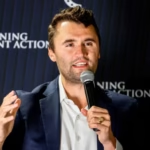

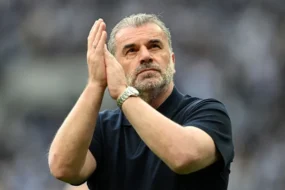
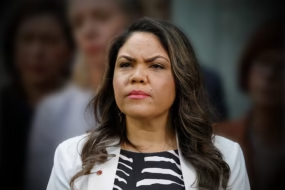
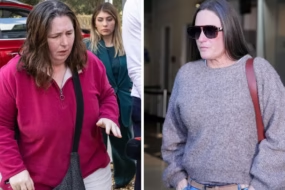

No Comments